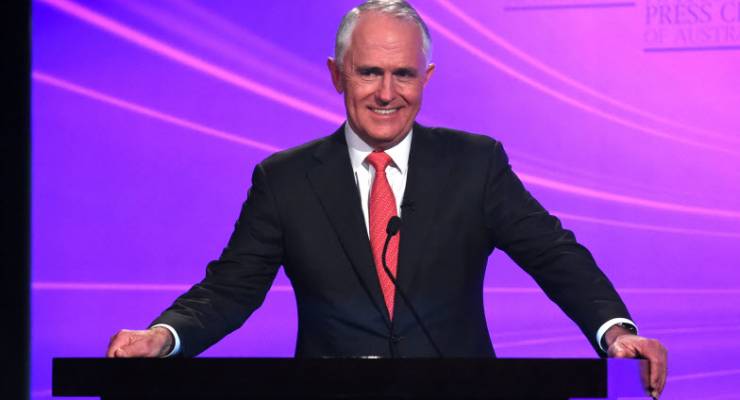
In a rare outbreak of actual policy discussion last night in the leaders’ debate, Prime Minister Malcolm Turnbull cited the United Kingdom as an example of a country that had cut company tax and generated growth while defending his $48 billion company tax cut. Except the UK demonstrates exactly the opposite — as Crikey’s Bernard Keane and Glenn Dyer showed in March, the UK’s economic growth record compares poorly to ours despite Australia having a significantly higher company tax rate.
Especially damningly, both wages growth and productivity have been much worse in the UK — in fact, labour productivity has gone backwards. But the UK’s company tax cut has helped in one area — the budget deficit. The UK Tories make our Liberals look like fiscal disciplinarians: the budget deficit in 2015 was 4.4% of GDP, compared to 2.4% of GDP here. Thank goodness the government’s funding cuts killed of the ABC Fact Check unit.







The corporate tax rate is irrelevant for multiple reasons:
1. A large chunk of companies appear to be paying 0% having magically found a way to borrow, Intellectual-Property-fee or report profit overseas safely away from the ATO. So 30% didn’t apply to them, 25% sure as shit won’t apply either.
2. There are countries with higher, countries with lower: it’s got little to do with anything. Companies are not going to suddenly hire more people or have more customers come out of the woods based off their tax rates on profits. They’re either making a profit or not – the corporate tax rate depends on making a profit.
We’ve had the lowest borrowing costs in a generation over the last few years, and that has not encouraged business to invest. To suggest that a tax cut (providing they pay tax) will result in a surge in Jobson Groeth(TM) is bunkum.
I understand that collectively our banks stand to make several billion dollars from tax cuts over the next few years. I’m sure they will be appropriately grateful.